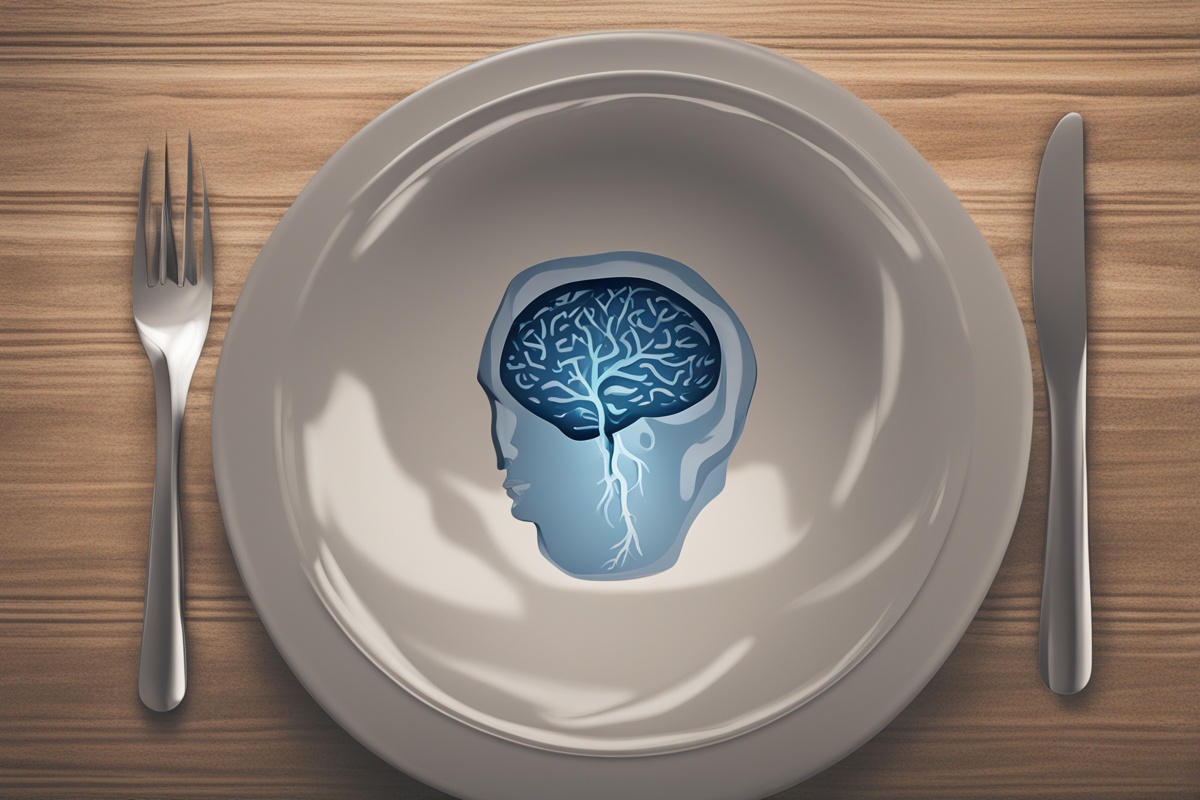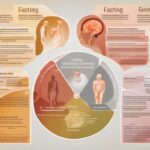Have you ever felt like your mind is clouded with distractions, stress, or just a general lack of focus? If so, you’re not alone. In our fast-paced world, achieving mental clarity can feel like an uphill battle. But what if the solution lies not in adding more to your routine, but in taking something away—specifically, food for a short period? fasting, a practice rooted in ancient traditions, is gaining modern traction for its remarkable benefits, including what many call “fasting mental clarity.” In this post, we’ll dive into how fasting can sharpen your mind, reduce brain fog, and enhance your overall mental well-being. Whether you’re new to fasting or a seasoned practitioner, you’ll find practical tips and science-backed insights to help you harness the power of fasting for a clearer, more focused mind.
What Is fasting Mental Clarity?
fasting mental clarity refers to the heightened state of focus, awareness, and cognitive sharpness that many people experience during or after a period of fasting. When you abstain from food for a designated time—whether through intermittent fasting, a 24-hour fast, or longer protocols—your body and brain undergo fascinating changes. Without the constant energy demands of digestion, your system can redirect resources to other functions, including brain optimization. Many fasters report feeling more alert, less distracted, and better able to tackle complex tasks. This isn’t just anecdotal; science is beginning to uncover why fasting and mental clarity go hand in hand, from reduced inflammation to improved neural connections.
The Science Behind Fasting and Brain Health
Let’s get into the nitty-gritty of why fasting boosts mental clarity. When you fast, your body shifts from using glucose (from food) as its primary energy source to burning stored fat for fuel, a process called ketosis. During ketosis, your liver produces ketones, which are compounds that cross the blood-brain barrier and serve as an efficient energy source for your brain. Studies suggest that ketones can enhance cognitive function and protect against neurodegenerative diseases. Additionally, fasting triggers autophagy, a cellular “cleanup” process that removes damaged cells and promotes brain health. Research published in journals like Frontiers in Neuroscience also indicates that fasting increases levels of Brain-Derived Neurotrophic Factor (BDNF), a protein linked to learning, memory, and mental sharpness. These mechanisms collectively contribute to the fasting mental clarity phenomenon.
How Fasting Reduces Brain Fog
Brain fog—that frustrating feeling of mental sluggishness—often stems from poor diet, stress, or inflammation. Fasting can help combat this in several ways. First, by giving your digestive system a break, fasting reduces the energy drain associated with processing food, allowing your brain to operate more efficiently. Second, fasting helps stabilize blood sugar levels, preventing the spikes and crashes that contribute to foggy thinking. Lastly, fasting has anti-inflammatory effects, which are crucial since chronic inflammation is linked to cognitive decline. If you’ve been searching for ways to clear mental clutter, incorporating fasting for mental clarity might just be the reset your brain needs.
Practical Tips to Maximize Mental Clarity During Fasting
While the benefits of fasting for brain health are impressive, the practice isn’t always a walk in the park, especially if you’re new to it. Hunger pangs, irritability, or fatigue can sometimes overshadow the mental clarity you’re aiming for. The good news? With a few strategic approaches, you can enhance your fasting experience and truly unlock that sharp, focused mindset. Here are some actionable tips to get started:
- Start Small: If you’re new to fasting, begin with a 12:12 intermittent fasting schedule (12 hours of fasting, 12 hours of eating) before progressing to longer fasts like 16:8.
- Stay Hydrated: Dehydration can worsen brain fog, so drink plenty of water during your fasting window to support cognitive function.
- Time Your Fast Wisely: Experiment with fasting during less demanding parts of your day to minimize stress while your body adjusts.
- Avoid Overeating Post-Fast: Breaking your fast with heavy, sugary meals can undo mental clarity benefits, so opt for nutrient-dense foods like vegetables and lean protein.
- Practice Mindfulness: Pair fasting with meditation or deep breathing to amplify focus and reduce stress during your fast.
Common Challenges and How to Overcome Them
Fasting isn’t without its hurdles, and it’s important to address them to maintain the mental clarity benefits. Some people experience headaches, low energy, or difficulty concentrating in the early stages of fasting. These are often temporary as your body adapts to new energy sources like ketones. To help you navigate these challenges and keep your focus on fasting mental clarity, consider the following strategies:
- Supplement with Electrolytes: Add a pinch of salt to your water or drink an electrolyte solution to combat headaches caused by mineral imbalances during fasting.
- Get Enough Sleep: Poor rest can exacerbate fasting fatigue, so prioritize 7–9 hours of quality sleep to support brain health.
- Listen to Your Body: If you feel overly fatigued or unwell, shorten your fasting window or consult a healthcare professional to ensure you’re fasting safely.
- Gradual Adaptation: Don’t jump into extended fasts immediately; build tolerance over weeks to minimize discomfort and cognitive dips.
Who Should Be Cautious with Fasting for Mental Clarity?
While fasting offers incredible benefits for brain health and mental sharpness, it’s not suitable for everyone. Certain groups should approach fasting with caution or avoid it altogether. Pregnant or breastfeeding women, individuals with eating disorders, and those with specific medical conditions like diabetes should consult a doctor before starting any fasting regimen. Additionally, if you’re on medication that requires food intake, fasting might not be ideal. Always prioritize safety and personalize your approach to fasting for mental clarity, ensuring it aligns with your unique health needs. When done correctly, fasting can be a powerful tool, but it’s essential to know your limits and seek professional guidance if needed.
In conclusion, fasting mental clarity is more than just a buzzword—it’s a tangible benefit that can transform the way you think, focus, and navigate daily challenges. By tapping into the science of ketosis, autophagy, and reduced inflammation, fasting offers a natural way to enhance brain health and banish brain fog. Whether you’re looking to boost productivity, improve decision-making, or simply feel more present, integrating fasting into your lifestyle could be a game-changer. Start small, stay hydrated, and listen to your body as you explore the mental clarity fasting can provide. Have you tried fasting for cognitive benefits? Share your experiences or questions in the comments below—we’d love to hear how fasting has impacted your mindset!






